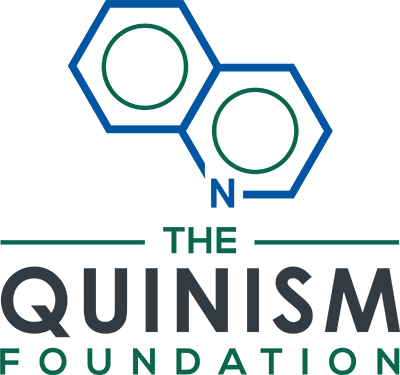The Quinism Foundation Incorporates As a Non-profit Corporation
The Foundation Supports Education and Research on Chronic Quinoline Encephalopathy, a Medical Condition That Can Mimic PTSD
WHITE RIVER JUNCTION, VT. (PRWEB) JANUARY 24, 2018
The Quinism Foundation has announced its official incorporation as a domestic non-profit corporation in the village of White River Junction, Vermont.
The Quinism Foundation promotes and supports education and research on the potentially life-threatening medical conditions caused by poisoning by quinoline drugs including the antimalarial drugs mefloquine (previously marketed as Lariam®) and tafenoquine, an unlicensed drug currently undergoing regulatory review by the U.S. Food and Drug Administration (FDA).
Symptoms of neuropsychiatric quinism, or chronic quinoline encephalopathy, can include terrifying nightmares, severe insomnia, crippling anxiety, and debilitating cognitive dysfunction and can contribute to an increased risk of suicide. Particularly among military veterans, many of whom were issued quinoline antimalarials during combat deployments, the lasting symptoms of neuropsychiatric quinism are regularly mistaken for those of Posttraumatic Stress Disorder (PTSD).
“Quinism affects veterans and civilians alike, but veterans suffering from chronic quinoline encephalopathy are frequently misdiagnosed with PTSD,” said Remington Nevin, MD, MPH, DrPH, executive director of The Quinism Foundation. “We are delighted to join the VA’s National Center for PTSD in making White River Junction, Vermont, our home. Our location helps position the village as an emerging center for research and education on these two neuropsychiatric conditions, which often mimic each other.”
In 2013, the FDA warned that mefloquine can cause long-lasting and even permanent adverse effects. More recent research confirms that nightmares and other abnormal dreams affect nearly 1 in 7 of those exposed to mefloquine [1], and that more than 1 in 5 of those who complain of nightmares report this symptom continuing over 3 years after exposure [2]. Other symptoms of neuropsychiatric quinism, due to central nervous system toxicity, can include lasting tinnitus, dizziness, vertigo, paresthesias, and visual disorders.
Authors at the U.S. military’s Walter Reed Army Institute of Research (WRAIR) [3], where several quinoline antimalarials including mefloquine and tafenoquine were developed, have noted that mefloquine toxicity “can persist for several years after exposure has been discontinued, with little to no abatement in symptoms over time,” and that given “the overlapping symptoms of post-traumatic stress disorder and mefloquine toxicity, it can be challenging to distinguish between the two diagnoses.” The U.S. Department of Veterans Affairs (VA) has recently awarded several disability claims to veterans for permanent neuropsychiatric conditions, including anxiety and insomnia, that it has concluded were due to exposure to mefloquine while serving in the military [4]. Independent research concludes that “mefloquine has been proven to be highly neurotoxic,” and that tafenoquine is even more neurotoxic than mefloquine [5].
About The Quinism Foundation
The Quinism Foundation promotes and supports education and research on quinism. Founded in January 2018, The Quinism Foundation is supported by private donations and is advised by an international committee chaired by Mr. Andrew Bryce, of Dublin, Ireland. The Foundation’s board of directors includes retired Navy Commander William Manofsky and retired Army Lieutenant Colonel Gregory Alderete.
Dr. Nevin, executive director, is a board-certified preventive medicine physician and former U.S. Army medical officer and epidemiologist. He is author of more than 30 scientific publications on malaria and the quinoline antimalarials, including “Mefloquine and Posttraumatic Stress Disorder,” published in the U.S. Army’s Textbook of Military Medicine series (see: http://www.cs.amedd.army.mil/FileDownloadpublic.aspx?docid=59eea54e-292d-4a35-9117-d9be6c40dac3).
1. Tickell-Painter M, Maayan N, Saunders R, et al. Mefloquine for preventing malaria during travel to endemic areas. The Cochrane Database of Systematic Reviews. 2017;10(10):CD006491.
2. Ringqvist Å, Bech P, Glenthøj B, et al. Acute and long-term psychiatric side effects of mefloquine: A follow-up on Danish adverse event reports. Travel Medicine and Infectious Disease. 2015;13(1):80-88.
3. Livezey J, Oliver T, Cantilena L. Prolonged Neuropsychiatric Symptoms in a Military Service Member Exposed to Mefloquine. Drug Safety Case Reports. 2016;3(1):7.
4. Nevin RL, Ritchie EC. FDA Black Box, VA Red Ink? A Successful Service-Connected Disability Claim for Chronic Neuropsychiatric Adverse Effects From Mefloquine. Federal Practitioner. 2016;33(10):20-24.
5. Agboruche RL. 529.3 In-Vitro Toxicity Assessment of Antimalarial Drug Toxicity on Cultured Embryonic Rat Neurons, Macrophage (RAW 264.7), and Kidney Cells (VERO-CCl-81). FASEB Journal. 2009;23(Meeting Abstract Supplement):529.3.

